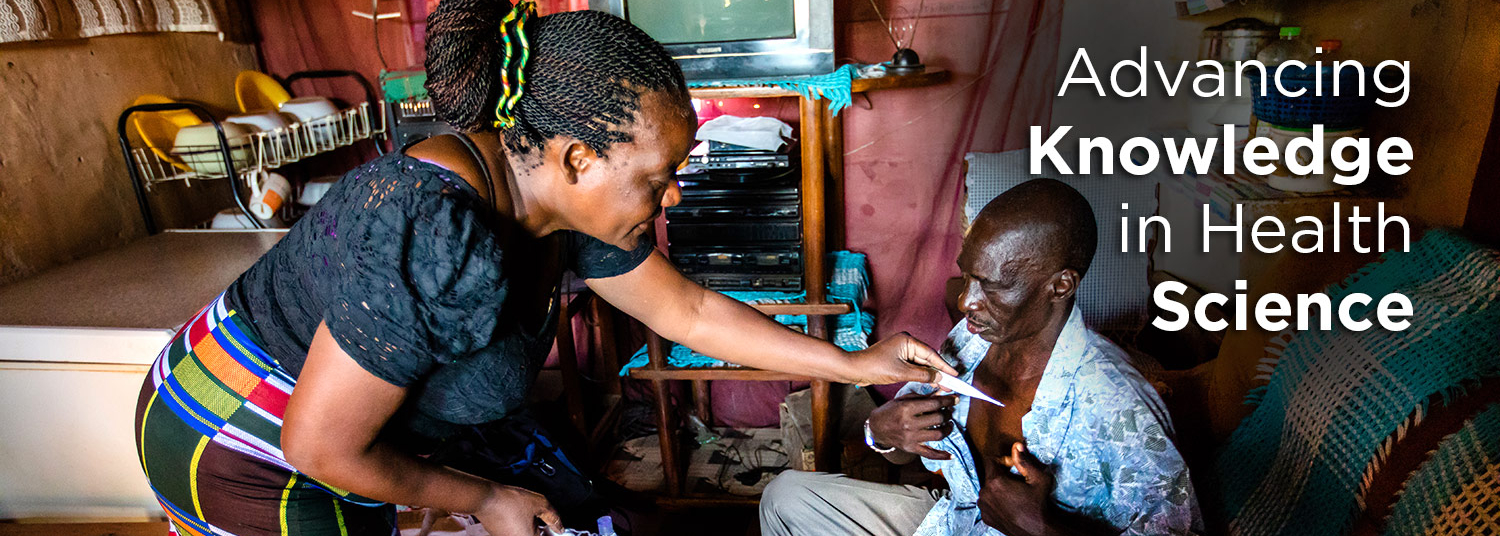AMPLIFY’s Impact: Strengthening HIV Diagnostics, Treatment Monitoring, and Laboratory Services in Malawi
October 18, 2024 | Talishiea Croxton

Malawi’s HIV prevalence is one of the highest in the world; 8.9% of the adult population, and an estimated 946,000 Malawians are living with HIV [MPHIA 2020-2021]. Malawi’s HIV program has made great strides towards the UNAIDS 95-95-95 goals, achieving 94-99-93 by March 2022 (Integrated HIV Program Report January-March 2022). With 909,284 patients on ART at 845 clinics across the 29 districts, robust laboratory services to diagnose treatment failure or advanced HIV disease are critical. There are 14 conventional molecular laboratories (ML), 21 district labs/hubs, 91 Point-of-Care Testing (POCT) sites for HIV Viral Load (VL), and 93 for Early Infant Diagnosis (EID).
In partnership with the Ministry of Health (MOH) through the Diagnostics section of its Department of Health and Technical Services (HTSS-D), the Center for International Health, Education, and Biosecurity (Ciheb) at the University of Maryland Baltimore (UMB) CDC-funded Accelerating Malawi’s PEPFAR Laboratory Logistics and Infrastructure for QualitY (AMPLIFY) significantly improved access to and quality of HIV diagnostics and treatment monitoring services across all 29 districts. Gains include significant increase in number of samples tested, improved VL coverage, ISO 15189 accreditation of nine conventional molecular labs, one district lab and one public reference lab, and so on as shown in Table 1. Key to achieving this was AMPLIFY’s capacity to build strong partnerships to deliver common goals, such as expanding sample collection to sites serving key populations (KP) with the sample transportation partner, increasing the VL coverage with clinical implementing partners (IPs), and integrating the clinic electronic medical records (EMR) system with the EID/VL Laboratory Information Management System (LIMS) with the health informatics partner. AMPLIFY developed drivers for Roche, Hologic Panther, Abbott m2000, Alinity m, and a GeneXpert gateway to enhance the seamless exchange of data between testing instruments in centralized conventional molecular labs and POC sites and the EID/VL LIMS. AMPLIFY brought innovation through virtual mentorship to support labs during the COVID-19 pandemic.
AMPLIFY’s use of strategic information allowed it to identify areas with challenges early, implement targeted data-driven interventions to address the challenges and evaluate the impact of the interventions to improve the lab services. For example, AMPLIFY performed various ad-hoc analyses for emerging challenges, such as investigating high proportion of low-level viremia in VL results following the introduction of Abbott Alinity m machines.
Under laboratory infrastructure, AMPLIFY installed power backup systems at eight MLs and two district hubs to reduce service interruption, renovated storage containers at two MLs to increase storage capacity, procured and installed 24 air conditioners in 18 laboratories to improve testing environment and machine performance, and installed biometric door access at 12 MLs to restrict access to the laboratory for unauthorized personnel.
During the COVID-19 pandemic, AMPLIFY strengthened the National Reference Laboratories’ (NRL) genomic sequencing capacity to respond to the emerging disease through financially supporting training of NRL’s bioinformatician in data analysis in South Africa. Other support to NRL included procurement of reagents and supplies to sequence at least 1,000 COVID-19 samples cumulatively and procurement of a server and high-powered computer for storage and analysis of large COVID-19 data sets being generated.
AMPLIFY seminal contributions to PEPFAR Malawi and broad impact on Malawi’s National HIV/AIDS program include several first times: 24 district and CHAM labs demonstrated improvement in Stepwise Laboratory Quality Improvement Process Towards Accreditation (SLIPTA), public laboratories achieved and maintained ISO15189 accreditation for the first time in Malawi. The National Reference Laboratory (NRL) at the Public Health Institute of Malawi (PHIM) was ISO15189 and ISO17043 accredited. Continuous Quality Improvement for POCT (POCT CQI), HIV VL, EID, cluster of differentiation 4 (CD4), and Mycobacterium tuberculosis (MTB) was piloted and rolled out to all 153 testing sites. AMPLIFY supported the training of three technicians and two master calibrators in preparation for the establishment of a local ancillary laboratory equipment calibration center which is envisaged to reduce costs and make services more accessible and timelier.
Contact
Jennifer Gonzales
Public Relations & Communications Manager
Center of International Health, Education, and Biosecurity
Institute of Human Virology
jennifer.gonzales@ihv.umaryland.edu

